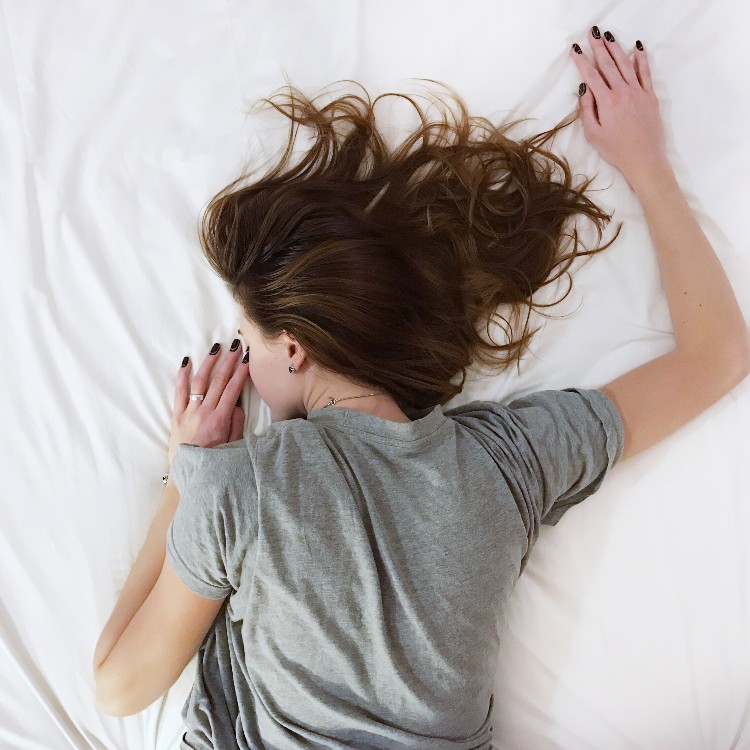
Fatigue During Period: Causes and Solutions
Feeling weak and tired during your period is not so rare. Hormonal changes that follow every menstrual cycle are major culprits for period fatigue. However, this fatigue, as well as other symptoms, should not be ignored. They can significantly impact everyday activities and cause some other health problems. Today, we are revealing to you all the causes and solutions for this kind of fatigue.
What Causes Fatigue During Period?
This exhaustion can be attributed to several connected factors. Let’s look at them closer:
Hormones Levels Changes
Fatigue during period is closely linked to hormonal fluctuations, primarily estrogen and progesterone. In the days leading up to menstruation, estrogen levels drop while progesterone levels rise, as part of the natural menstrual cycle. These hormonal changes affect serotonin levels, a neurotransmitter that regulates mood and energy. Reduced serotonin levels then lead to symptoms of premenstrual syndrome (PMS), including mood swings and fatigue.
The fall in estrogen levels can disrupt the body’s ability to efficiently utilize glucose for energy, which results in decreased energy levels. These hormonal changes are the main cause of the tiredness that many women experience during their periods.
Heavy Bleeding
Another cause of fatigue during period is heavy menstrual bleeding (menorrhagia). Excessive blood loss can lead to a drop in the red blood cell count, a condition known as anemia. Anemia occurs when there isn’t enough iron in the body to produce hemoglobin, a protein that transports oxygen to cells and tissues.
As a result, the body becomes less efficient at delivering oxygen, leading to symptoms such as fatigue, weakness, and dizziness. If heavy menstrual bleeding is suspected to be the cause of significant fatigue during a period, it is advisable to consult a physician who can diagnose the condition, recommend appropriate treatments, and check for any underlying causes that contribute to the heavy bleeding.
Thyroid Gland Problem
Thyroid gland issues can significantly contribute to fatigue during the menstrual period. Two common thyroid disorders, hyperthyroidism and hypothyroidism, can disrupt the hormonal balance in the body. In hyperthyroidism, the thyroid gland produces an excessive amount of thyroid hormones, leading to symptoms such as anxiety, a rapid heart rate, and increased energy expenditure. The opposite state is hypothyroidism. That is the condition where the thyroid gland doesn’t produce enough thyroid hormones. Hypothyroidism can result in overall sluggishness, weight gain, lethargy, and increased fatigue during menstruation.
Thyroid disorders can be diagnosed through blood tests. Treatment usually involves medication to normalize hormone levels, thereby alleviating the fatigue associated with menstrual periods.
Food Cravings
Food cravings and fatigue during the menstrual period are closely related due to hormonal fluctuations. Low serotonin levels during the premenstrual phase can trigger cravings for specific types of food. It often causes a desire for foods high in carbohydrates and sugars, as they temporarily boost serotonin levels. However, these cravings lead to blood sugar spikes and crashes, which result in fatigue and low energy levels. To control fatigue and food cravings during your period, it’s essential to maintain a balanced diet with a focus on protein, fiber, healthy fats, and antioxidants. Healthy foods stabilize blood sugar levels and provide sustained energy.
Solutions for Period Fatigue
Managing period fatigue is crucial for maintaining productivity and a normal activity level. Fortunately, there are several effective solutions to alleviate fatigue and boost energy levels. Let’s check them out!
Exercise
Regular exercise is a powerful tool for combating fatigue during your period. Physical activity triggers the release of endorphins, hormones that boost mood and reduce the feeling of pain. They counteract mood-related fatigue and low energy during menstruation. On the other hand, physical activity promotes better blood circulation. It helps alleviate cramps and reduces sluggishness and dizziness during period. It also accelerates metabolism, making it easier to handle the increased energy demands during menstruation.
Quality Sleep
During the menstrual cycle, hormonal fluctuations can disrupt the circadian rhythm. Adequate sleep restores energy reserves and promotes the body’s ability to recover. By prioritizing a consistent sleep schedule, creating a comfortable sleep environment, and practicing relaxation techniques, you can improve the quality and duration of your sleep. This will help you reduce period fatigue and facilitate mood-related symptoms.
Food Supplements
Due to factors like heavy menstrual bleeding, dietary choices, and hormonal fluctuations, women often experience nutrient deficiencies. These include iron, vitamin B12, magnesium, and calcium. These deficiencies contribute to feelings of exhaustion, weakness, sleepiness, and frequent mood changes. Iron supplements can correct iron-deficiency anemia, which often results from heavy menstrual bleeding. Vitamin B12 and calcium supplements can provide a necessary energy boost, support bone health, and help regulate blood pressure. Magnesium supplements are efficient in controlling mood, blood sugar, and energy.
If you want to restore your energy in a completely natural way, you can try the VANA Health System. It is a polyphenol based premium food supplement that comes with a health tracking app. Except for restoring your energy and improving your sleep quality, you can experience:
- Better mood and concentration
- Reduced stress levels
- Better digestion and immunity
- Easier weight control
- Body detox
- Improved skin health
Don’t hesitate to start your journey to better health today and experience these incredible health benefits.
Better health starts now!
Summing Up
Fatigue during period is a common symptom of hormonal changes that occur every menstrual cycle. It can be reduced through a proper diet, physical activity, and certain food supplements. However, if fatigue increases from cycle to cycle and becomes difficult to control, don’t ignore it. Seek professional medical help as soon as possible! Extreme fatigue could be a sign of a more serious hormonal or gynecological disease.
Frequently Asked Questions
How can I stop fatigue during my period?
To alleviate fatigue during your period, you can try several strategies:
- Eat healthy food: Consume food rich in proteins, healthy fats, and plenty of fruits and vegetables. This can help you stabilize blood glucose levels and reduce sugar cravings.
- Regular exercise: Take some time for physical activity to boost your mood, improve circulation, and enhance your energy.
- Quality sleep: Prioritize a consistent sleep schedule and create a comfortable sleep environment to ensure restful nights.
- Manage stress: Practice relaxation techniques like meditation, deep breathing, or yoga to reduce stress and fatigue.
- Supplements: Check your blood count to determine if you have any nutrient deficiencies and which supplements may be beneficial.
- Seek medical advice: If fatigue during your period is severe, persistent, and interferes with your daily life, consult a healthcare provider to rule out underlying medical conditions.
Should you sleep more on your period?
During the menstrual cycle, women experience physical and hormonal changes that often require additional rest. It is crucial to pay attention to your body’s needs and prioritize getting enough sleep during this time. Resting adequately can help alleviate discomfort and mood-related symptoms associated with menstruation.
Is it OK to eat more during your period?
It’s generally okay to eat more during your period if your body signals that you need it. However, it’s essential to make healthy food choices and listen to your body’s cues. Opt for nutrient-rich foods, like fruits, vegetables, nuts, complete proteins, and healthy fats, to maintain your energy levels and overall health. You should avoid consuming fast food and sugar to prevent blood sugar spikes and crashes, which can worsen fatigue. Remember that everyone’s nutritional needs and experiences during their menstrual cycle are different. It’s essential to pay attention to your body’s signals to make the best dietary choices for your specific needs.
Important notice: This article is intended for educational purposes only. For professional advice, consult your physician.


